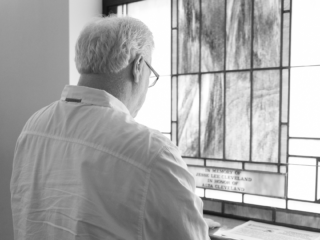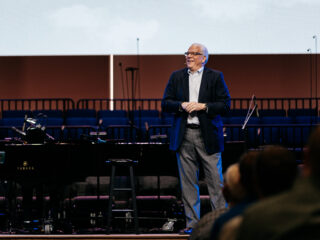Like everyone else, churches are trying to figure out how they are doing after the quarantine caused by the current pandemic. Whenever we talk to other church leaders, the conversation is always the same:
“What did you do during the pandemic?”
“Is your attendance back to pre-pandemic levels?”
“How did your giving go?”
“When do you think things will be back to normal?”
Everyone is trying to figure out if their church is healthy enough to face an uncertain future. Traditionally, we use markers like budget and attendance numbers to measure church health and growth. I’m not sure these numbers fairly indicate the health of a congregation, and, after the pandemic, I think we need to do a better job of understanding what makes a church healthy.
In biology, there are several characteristics that are used to distinguish living things from non-living things. One of those attributes is the ability to reproduce. Rocks don’t have babies. Trees do. Dirt doesn’t raise offspring. Elephants do. If the church is an ORGANISM (and it is) and not an ORGANIZATION (and it’s not), then the church should be able to reproduce. That is, the health of the church should be measured by the church’s ability to reproduce — both new churches and new disciples.
So, how is our church doing? Pretty well. First, as most of us know, under the leadership of Fady Al-Hagal, we’re putting together plans to be part of 100 congregations throughout Middle Tennessee. Every one of our campuses is engaged at some level in planting a new congregation. God is opening doors for new congregations, bringing us new leaders, and step by step revealing the plan He has in mind for us. Every day we get more excited about what we see God doing to start new churches in Nashville.
Second, while we’re doing okay in discipleship, we need to push much harder in this area of church life. The central question of success for any church is simple: are we producing men and women who look more like Christ? Are people thinking like Jesus? Loving like Jesus? Reaching out to the “least of these” like Jesus?
Too many times, we think discipleship is learning all of the details of Jesus’ life. Yes, studying is important, but the real test of discipleship comes in obedience. Are we following Christ into the broken places of the world, preaching the good news? Healing the sick? Bringing home the orphans and the abandoned?
By most measures, our church is healthy, but we are not thriving. We need to become much more intentional about our discipleship if we are going to thrive. Everyone needs to be growing in Christ. Everyone needs to be walking with Christ. Everyone needs to know Christ more.
This might be a good time to check your own progress as a disciple. Where are you on this scale? How healthy you are as a disciple goes a long way in determining how healthy we are as a church.









